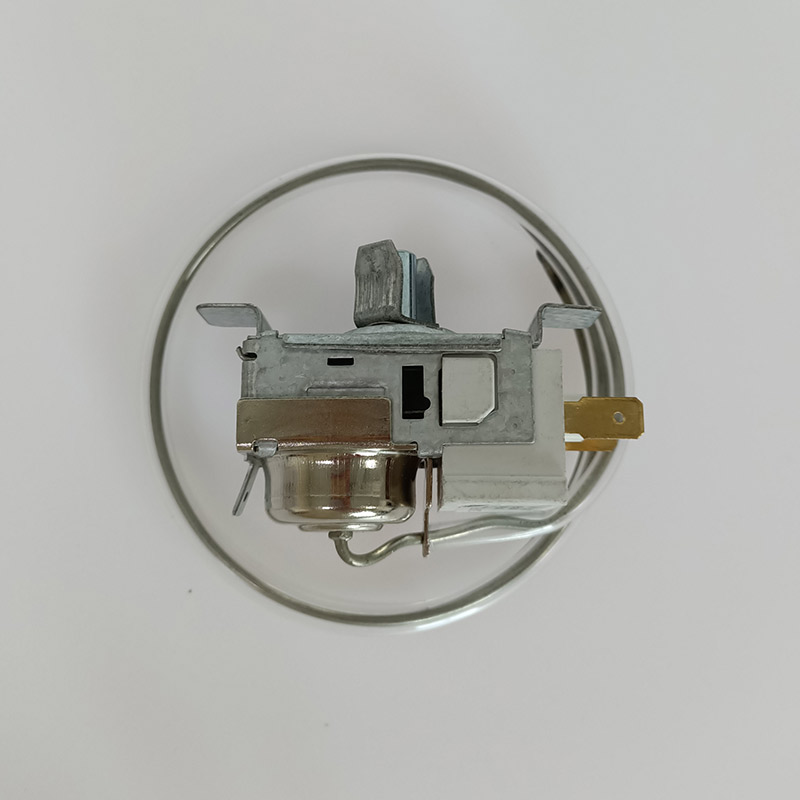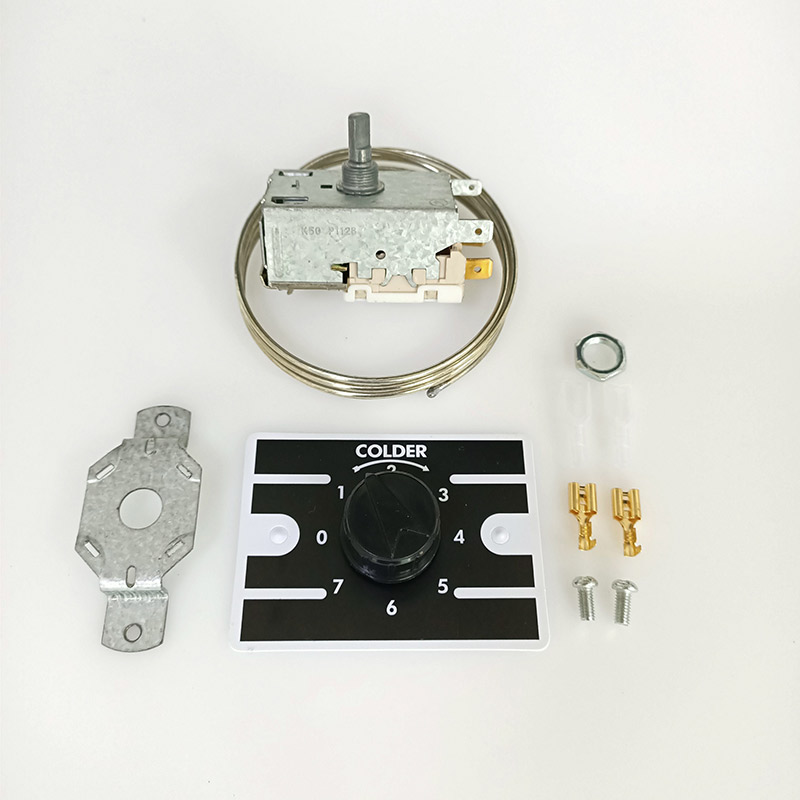This material may not be published, broadcast, rewritten, or redistributed. ©2024 FOX News Network, LLC. All rights reserved. Quotes displayed in real-time or delayed by at least 15 minutes. Market data provided by Factset. Powered and implemented by FactSet Digital Solutions. Legal Statement. Mutual Fund and ETF data provided by Refinitiv Lipper.
Energy costs are rising across the country, but smart thermostats may be useful in managing your energy output and budget. Kurt ‘The CyberGuy’ Knutsson reports. Central Air Unit Thermostat

A wake-up call to the security of our home-connected devices follows a recent incident involving the Bosch thermostat model BCC100 and explores how we can protect our devices at home before trouble comes our way.
Bitdefender Labs, a smart home cybersecurity firm, recently discovered a significant vulnerability in the Bosch BCC100 thermostat.
This issue could allow hackers to access and manipulate the thermostat's settings or even install malicious software.
This discovery underscores a broader concern. Virtually any device connected to the internet, from your coffee machine to your security cameras, could be at risk.
CLICK TO GET KURT’S FREE CYBERGUY NEWSLETTER WITH SECURITY ALERTS, QUICK VIDEO TIPS, TECH REVIEWS, AND EASY HOW-TO’S TO MAKE YOU SMARTER
Several connected or "smart" thermostats have reported security vulnerabilities over the years. These incidents highlight the broader issue of security in the Internet of Things (IoT) devices. Here are a fewexamples:
1. Google Nest Thermostats: In the past, Google's Nest thermostats have had their share of security concerns. For instance, in 2016, researchers demonstrated that it was possible to exploit the USB connection to install malicious firmware. Google has since made efforts to improve the security of these devices.
GET FOX BUSINESS ON THE GO BY CLICKING HERE
2. Honeywell Thermostats: Honeywell, another prominent thermostat manufacturer, has faced issues with its smart thermostats. In 2015, a security researcher discovered vulnerabilities in Honeywell's Wi-Fi thermostats that could allow an attacker to remotely access the device's password and personal information.
3. Trane Thermostats: In 2016, Trane's ComfortLink II thermostats were found to have multiple vulnerabilities, including one that allowed remote access without proper authentication. These issues were later addressed through firmware updates.
Bosch BCC100 thermostat app (Bosch)
MORE: 7 BEST WAYS TO SAVE MONEY ON YOUR ELECTRICITY BILL
The problem with the BCC100 thermostat stems from its design. It uses two microcontrollers, one for Wi-Fi and another for the main logic. The flaw lies in the communication between these chips.
MORE: THE RIGHT WAY TO USE A SPACE HEATER IN THIS COLD SEASON
An attacker could exploit this to send commands, including harmful updates, to the thermostat. This vulnerability was serious enough for Bosch to start working on a fix as soon as Bitdefender reported it.
We've made contact with Bosch's parent company which offered the following statement:
"Security is a top priority at Bosch Home Comfort. Our experts continuously monitor threats and implement prompt countermeasures.
"On Aug. 29, 2023, Bitdefender notified Bosch about a potential vulnerability with Bosch Home Comfort thermostats sold in the U.S. and Canada. We immediately took up this information to confirm the vulnerability, as well as develop and test the solution.
"Through this testing, we also confirmed that the vulnerability was limited to the device only. On Oct. 12, 2023, a software update was pushed to all affected customers. Full details are posted on the Bosch Product Security Incident Response Team site (Open Port 8899 in BCC Thermostat Product | Bosch PSIRT)."
BIDEN ADMIN'S CRACKDOWN ON DISHWASHERS DEALT BLOW BY APPEALS COURT
MORE: SMART VS. WIFI THERMOSTATS: THE PROS AND CONS + MY 5 TOP PICKS
What does this mean for you as a smart home user? First and foremost, it's a reminder of the importance of keeping your devices updated. In the case of the BCC100, updating the firmware is a critical step in protecting against this specific threat.
A Bosch bulletin says you can call 1-800-283-3787 for customer support if you need extra help with updating both the thermostat firmware and Wi-Fi firmware. However, beyond just updating, there are four other steps you can take to safeguard your smart home.
Changing the default administrative passwords on your devices is a good start. Many users overlook this simple step, but it's a crucial line of defense against unauthorized access. Also, consider using a password manager to generate and store complex passwords.
Another vital practice is to think twice before connecting devices to the internet through through Wi-Fi. Ask yourself, does my coffee maker really need to be online? If a device doesn't need internet access to function effectively, consider keeping it offline.
Employing a firewall is another smart move. Firewalls help block unauthorized access to your devices, adding an extra layer of security. It's like having a digital gatekeeper for your smart home.
Lastly, when purchasing smart home devices, prioritize security. Look for products from manufacturers who are committed to regular security updates and have a good track record in this area. Remember, even the most seemingly harmless devices can pose security risks if they're not properly secured. See the top reviews for the best antivirus protection options here.
CLICK HERE TO GET THE FOX NEWS APP
The Bosch thermostat incident is a stark reminder of the potential vulnerabilities in our smart homes. By taking proactive steps like updating firmware, changing default passwords, being selective about internet connectivity, using firewalls and choosing secure devices, you can significantly enhance the security of your connected home. Stay informed, stay updated and stay secure.
Do you think manufacturers are doing enough to protect your smart home devices from potential security vulnerabilities like the one discovered in the Bosch BCC100 thermostat? Let us know by writing us at Cyberguy.com/Contact
For more of my tech tips and security alerts, subscribe to my free CyberGuy Report Newsletter by heading to Cyberguy.com/Newsletter
Ask Kurt a question or let us know what stories you'd like us to cover
Answers to the most asked CyberGuy questions:
Copyright 2024 CyberGuy.com. All rights reserved.
Kurt "CyberGuy" Knutsson is an award-winning tech journalist who has a deep love of technology, gear and gadgets that make life better with his contributions for Fox News & FOX Business beginning mornings on "FOX & Friends." Got a tech question? Get Kurt’s CyberGuy Newsletter, share your voice, a story idea or comment at CyberGuy.com.
Get a daily look at what’s developing in science and technology throughout the world.
You've successfully subscribed to this newsletter!

Faulty Fridge Thermostat This material may not be published, broadcast, rewritten, or redistributed. ©2024 FOX News Network, LLC. All rights reserved. Quotes displayed in real-time or delayed by at least 15 minutes. Market data provided by Factset. Powered and implemented by FactSet Digital Solutions. Legal Statement. Mutual Fund and ETF data provided by Refinitiv Lipper.